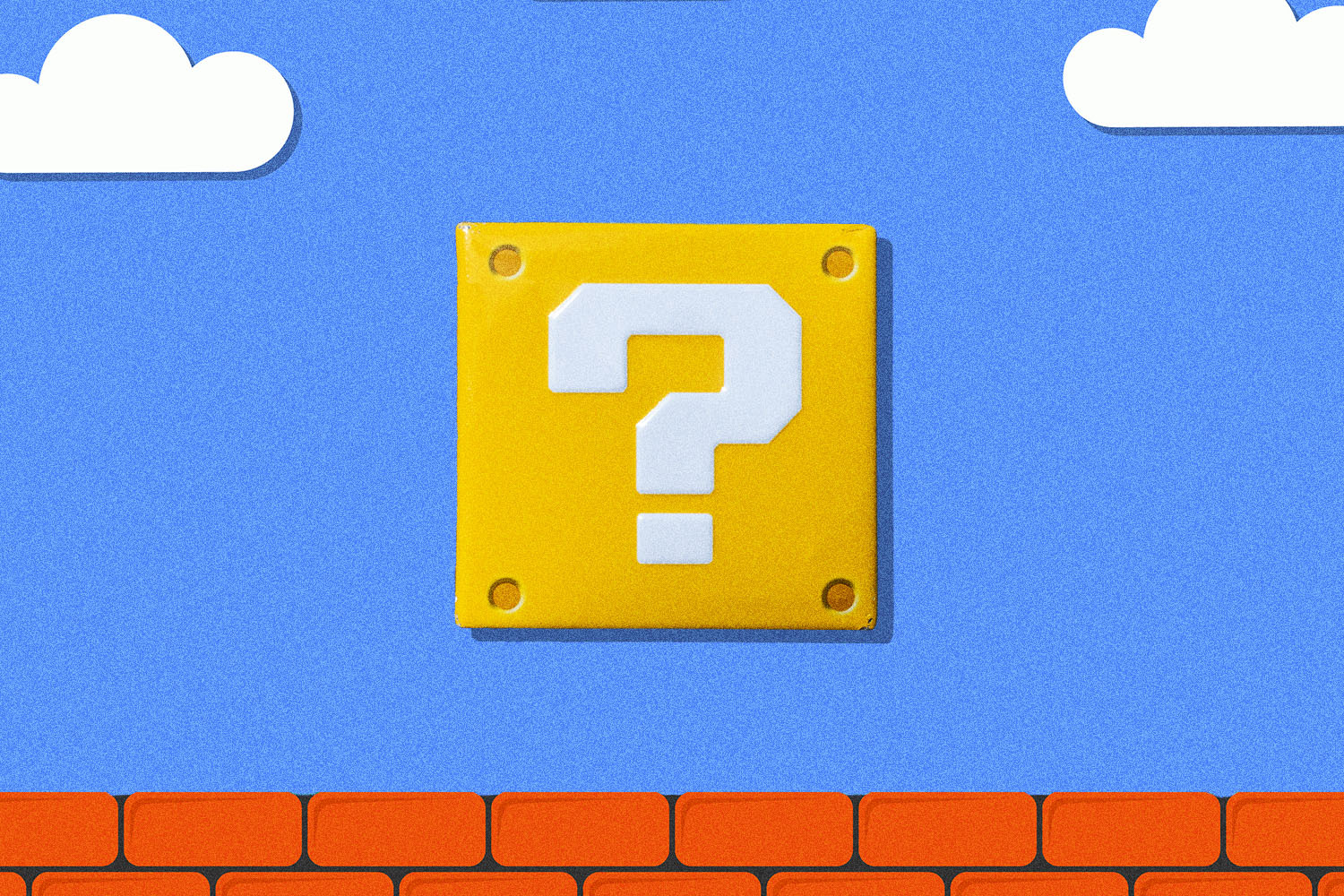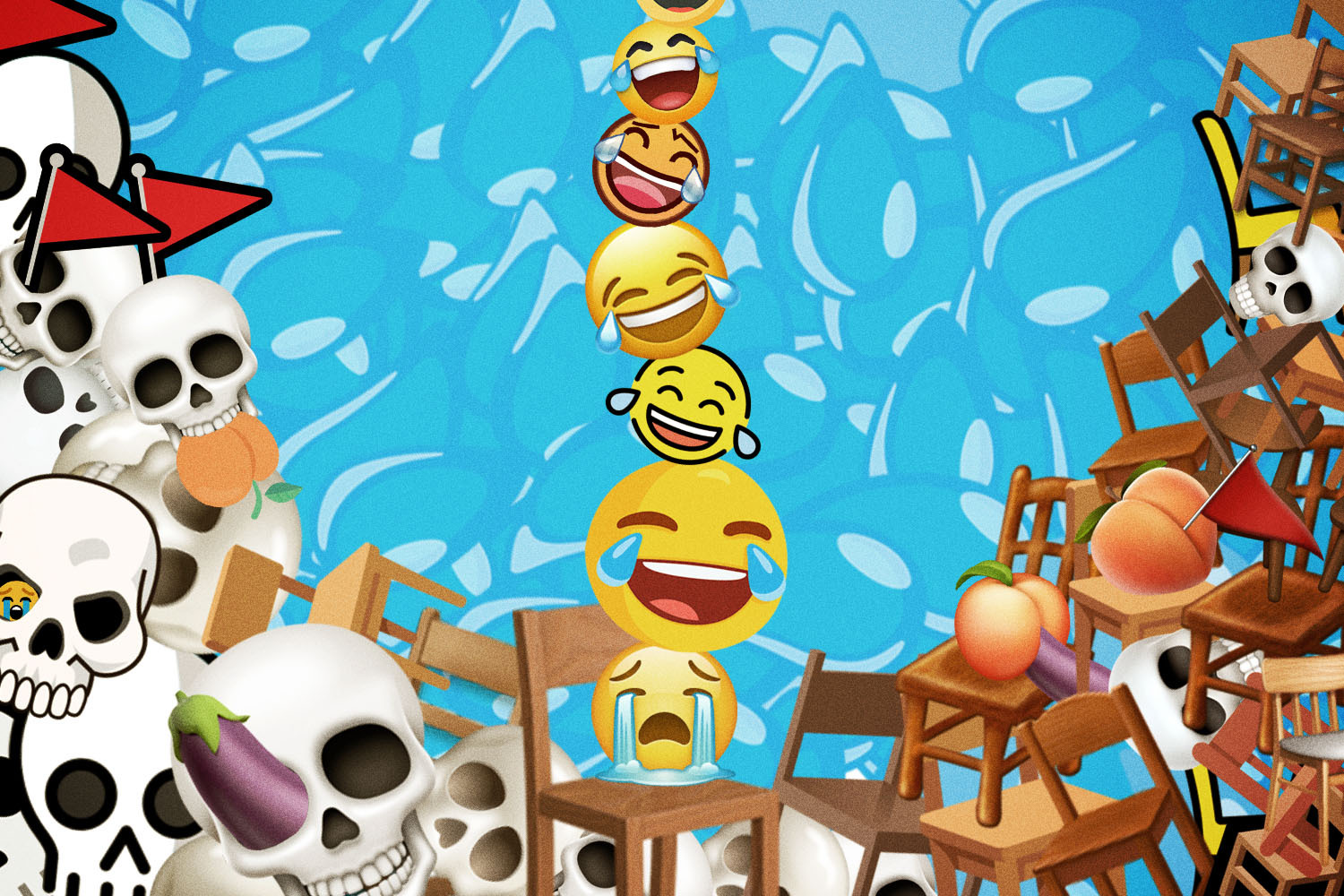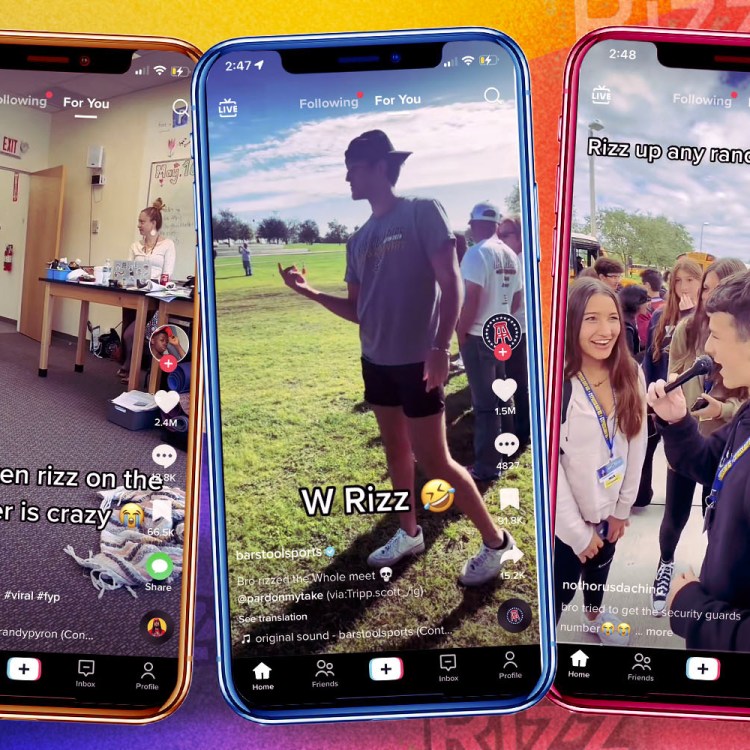Nowadays, you can easily deduce someone’s age based on how they communicate. Do they use the “Face with Tears of Joy” emoji instead of the “Loudly Crying Face” emoji to connote laughter? Do they use a question mark when posing an inquiry over text? And when you say “thank you,” do they respond with “you’re welcome” or “no problem”?
That third scenario has caused quite a hubbub among Twitter users. A couple of months ago, user @DrHistoryBrad tweeted a theory as to why younger generations like Millennials and Gen-Zers use a more nonchalant phrase in lieu of “you’re welcome.”
“My generation says ‘no worries’ instead of ‘you’re welcome’ to 1) show that doing a favor for someone doesn’t need to be a transactional thing and that we’re happy to help, and 2) because if they really knew how worried we actually were, they’d never ever talk to us again ever,” reads the tweet, which accumulated 168,000 likes and nearly 25,000 retweets.
As a Gen-Zer myself, the tweet caused me to do some self-reflecting. In recent years I’ve noticed myself saying “no problem” rather than “you’re welcome,” a response I formerly used pretty predominantly to acknowledge an expression of gratitude. I have no idea where I adopted the phrase, but I assume my Gen-Z and Millennial peers may have rubbed off on me.
Adam Korbl, Founder and CEO of Amplify, has also noticed that these more laidback responses are prevalent among younger folk.
“Recently, I’ve been catching up with my nieces and nephews, and I ask the same question: ‘Why do you guys say, “no worries” or “no problem”?’ They answer that ‘you’re welcome’ sounds formal,” Korbl says. “Most youngsters want to be friendly in the very first conversation, and they think saying something so formal can make the other person shy. Or, when they tend to not like someone and never want to meet them again, they would then use formal language.”
Formal language is unquestionably falling by the wayside, and we can likely thank the internet for that. Instant messaging and texting have compelled many young people to forgo punctuation altogether, since receiving a message with a period or question mark at the end of it can induce anxiety for some. This is because punctuation is now considered “formal,” which roughly translates to “serious.”The same is true for “you’re welcome,” according to linguists, and it might explain why younger generations are using less formal phrases when someone thanks them.
“It’s super-interesting to look at this issue of younger people saying things like ‘no problem’ and ‘no worries’ instead of ‘you’re welcome’ after someone thanks them,” says Keith Philips, a former language professor and the CEO of realLINGUA, a language learning service. “On a real basic level, one thing that can be difficult to be aware of, linguistically speaking, is that languages are constantly evolving. Now, this happens at different rates and to varying extents depending on the language, the number of speakers, its geographical usage, etc., but suffice to say that in this way, a language is a living, breathing entity that undergoes changes as people use it. For example, nearly 15 new words are created in English every day by its speakers all over the world. Where things get interesting is when we consider linguistic register — that is, language in terms of being more formal to less formal on a sliding scale.”
During his career teaching languages for more than 20 years and now leading an EdTech language startup, Philips has observed that people’s register — whether we’re more or less formal in the way we speak to one another — is evolving.
“When I think about the three phrases above, I definitely tag ‘you’re welcome’ as more formal than the other two. With formal speech becoming less and less de rigueur, it stands to reason that younger people would gravitate toward less formal phrases like ‘no problem’ and ‘no worries.’ For one, they don’t have a need to be formal with their peers. And because their peers are most likely the people they’re speaking to the most, on balance, it stands to reason that these less formal phrases would get more airtime in their daily lives,” he continues.
“Now, throw in a more formal situation or two throughout the day in these younger people’s lives, for example when a teacher, boss or grandparent thanks them, and there is a very high tendency that their lower register or less formal phrases will slip past the goalie here and there, and most likely on an ever-increasing basis in part due to that linguistic evolution.”
Stefan Dollinger, M.A., Ph.D. and Professor of English Linguistics at The University of British Columbia at Vancouver notes that “you’re welcome” has a ring of classic, old-fashioned language to it. “Quasi the language of the establishment, your parents’ speech,” he says, adding that the terms that come into general use now are from informal language strata and slang. “Here, the Australian ‘no worries’ fits perfectly. It signals a kind of new, relaxed attitude that the other formulae don’t. With the social liberalization in the wake of the late 1960s, in hindsight, it seemed like a perfect choice. ‘It’s cool, man’ might have been another one, and for a time the two likely competed.”
This brings us to the theory that younger people are attempting to make the act of receiving gratitude a less transactional experience by using less formal phrases. “Our perception of gratitude is evolving,” says Danielle Saccardi, a Campaigns Manager at language learning app Preply. “Whereas older generations think that doing something for someone is not expected of them — and hence ‘welcome’ the other person’s expression of gratitude — younger generations think of helping others out as a social obligation. Hence, they would simply brush away gratitude by saying ‘no problem’ to indicate that the gesture was no burden to them.”
Saccardi also notes the phrase “you’re welcome” has acquired a new meaning for younger generations, as many use it sarcastically to point out that another person forgot to thank them. The best example of this might be in the 2016 Disney film Moana, when the demigod Maui, played by Dwayne “The Rock” Johnson, sings a banger of a song titled “You’re Welcome” about all of the remarkable things he’s done for humans after the film’s protagonist does not immediately express gratitude to him.
Interestingly, both Saccardi and Philips note that it’s not just English speakers saying “no problem.” Around the globe, similar phrases are becoming more commonly used to express that doing a favor for someone is no big deal.
“This phenomenon is happening all over the planet in other languages as well. For example, in French, ‘pas de problème’ and “pas de soucis,” and in Spanish, ‘no hay problema,’ are being used on an ever-increasing basis,” says Philips.
“If you look at world languages, you will definitely see equivalents of ‘no problem’ being used more frequently in conversations than equivalents of ‘you’re welcome,’ adds Saccardi. Other examples include the Arabic phrase “la shukran ala wajib” (don’t thank me for doing my duty) or Japanese phrases like “ieie” (no, no) and “tondemonai” (it’s nothing) are often used to say “don’t mention it.”
To be clear, there’s nothing wrong with saying “you’re welcome.” It doesn’t mean you feel that doing a particular thing for someone was irksome or inconvenient. Many of the linguists I spoke to contribute this phenomenon largely to linguistic mirroring. This basically means if the people you interact with on a day-to-day basis often say “you’re welcome” or “no problem,” then you’ll likely mirror whatever phrase is more frequently being used around you.
“I believe that this is just part of the evolution of language,” adds Saccardi. “The majority of speakers will not intellectualize the connotative meanings of their utterances. Rather, they are more likely to just use particular phrases instead of others because that’s what they have grown into.”
This article was featured in the InsideHook newsletter. Sign up now.























